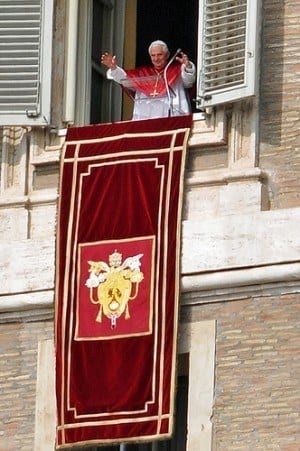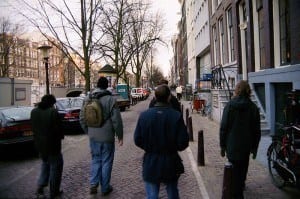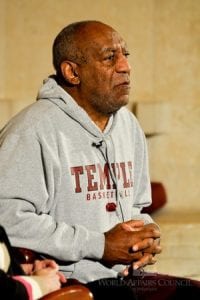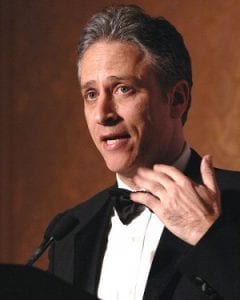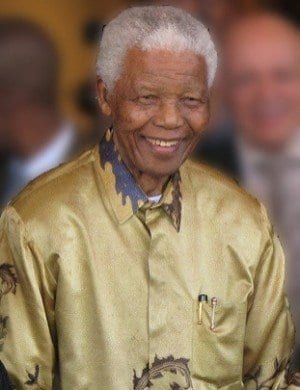
Mandela subject of prayers and vigils for the South African people
Nelson Mandela, the anti-apartheid leader and former president, is reported to be on life support in a hospital in Pretoria, South Africa. Mandela has been battling a recurring lung infection since his hospitalization on June 8, but government spokesperson Mac Maharaj has decline to comment on Mandela’s condition, citing doctor-patient confidentiality.
Since Sunday, authorities have described Mandela’s condition as critical, and President Jacob Zuma has even canceled his visit to Mozambique, where he was supposed to attend a summit, after visiting Mandela Wednesday night.
“Doctors are doing everything possible to ensure his well-being and comfort,” said Zuma in Johannesburg. Describing his visit, he added, “Given the hour he was already asleep. We were there, looked at him, saw him and then we had a bit of discussion with the doctors and his wife. I don’t think I’m in a position to give further details. I’m not a doctor.”
Wishes and prayers are also being sent toward Mandela, with candlelight vigils being held outside the hospital for the 94-year-old founding father of South Africa’s multiracial democracy. The attendees have also hung balloons and stuffed animals within view, and the nation remains on edge as police barricade the street leading to the hospital’s main entrance.
Signs of support and sadness are also being displayed. “We need you!” says one. “We love you tata, get well soon!” says another, using the Xhosa word for father to refer to Mandela.
“He’s going to feel a lot better when he sees these signs,” said David Manaway, Mandela’s grandson-in-law, who came to collect some items on Wednesday.
Mandela became an international figure against oppression as he spent 27 years in prison for protesting against apartheid, South Africa’s former legal system of racial segregation overseen by minority white rule. He was released in 1990, and elected as the country’s first black president in 1994, the same year that the nation’s final all-whites parliament voted itself out of existence.
Mandela has faded from the spotlight since then, retiring from public life in 2004, but the 1993 Nobel Prize-winner remains immensely popular as a hero of worldwide democracy. Mandela has not been seen in public since the July 2010 World Cup soccer final in South Africa, and has been hospitalized four times since December, mainly for a pulmonary condition that has affected him for years.
“He is our hero. He is my mentor, my father. He is everything to me,” said Kuda Nyahumzvi. “But when it is his time, we wish his soul could just rest. He spent so long in jail and struggling.”
Chris Wakube, upon urging by his mother, brought a card for Mandela. He said, “We are in the midst of history, and I want to be there, to be part of what will happen to our grandfather. He has done everything for us.”
While South Africans pray for the best, Mandela’s family and the South African government are hoping for an easy and dignified transition. An archbishop stopped by the hospital and conducted prayers, calling for “a quiet night and peaceful, perfect end” for Mandela.
“Fill them with your holy courage and gift of trusting faith, and take away their fears so that they may dare to face their grief,” said Archbishop Thabo Makgoba, who joined Mandela’s family at the hospital. “And uphold all of us with your steadfast love so that we may be filled with gratitude for all the good that he has done for us and for our nation, and may honor his legacy through our lives.”
Currently however, funeral arrangements are not part of the discussion for Mandela, who turns 95 in July.


